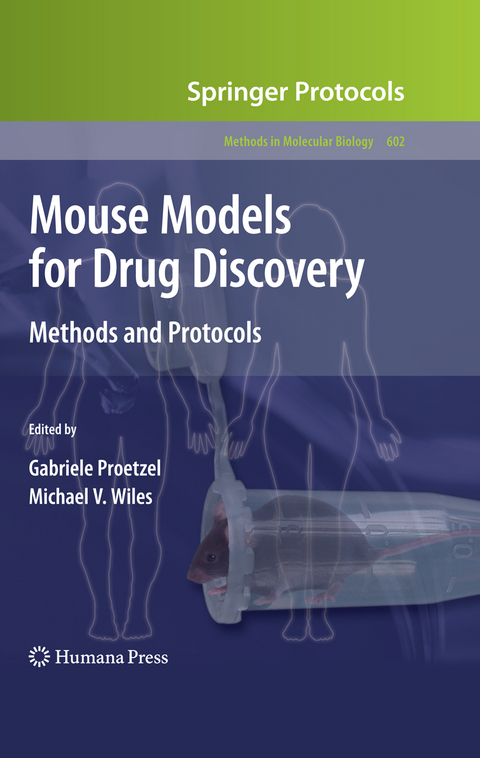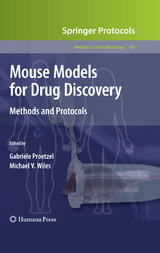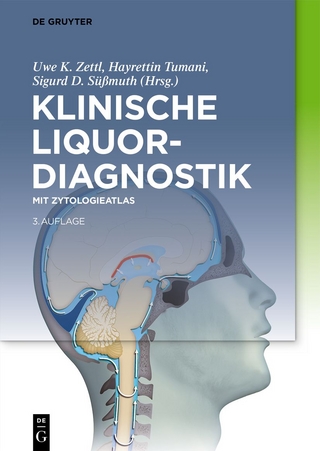Mouse Models for Drug Discovery
Humana Press Inc. (Verlag)
978-1-60761-057-1 (ISBN)
As the drug discovery process shifts more and more toward specifically targeting pathways and molecules, model systems continue to increase in importance, and the mouse, with its versatility, ease of use, and remarkable similarity to the human genome, has clearly risen to the forefront of animal model studies. In Mouse Models for Drug Discovery: Methods and Protocols, experts in the field present some background for those less familiar with mice as experimental model platforms as well as a collection of techniques involving general methods as well as specific disease topics such as type 1 and 2 diabetes, cardiovascular disease, arthritis, skin disorders, cancer, the use of behavioral models for depression and anxiety, neurodegenerative diseases, neuromuscular diseases, and infectious diseases. Written in the highly successful Methods in Molecular Biology™ series format, chapters include introductions to their respective topics, lists of the necessary materials and reagents, step-by-step, readily reproducible laboratory protocols, and notes on troubleshooting and avoiding known pitfalls.
Authoritative and easy-to-use, Mouse Models for Drug Discovery: Methods and Protocols will stimulate those not familiar with the power of the mouse and its potential for the drug discovery process, and it will encourage the development of new models and new ways to utilize existing models in order to further the use of this dynamic animal in this vital field.
Improving Toxicity Screening and Drug Development by Using Genetically Defined Strains.- The Sophisticated Mouse: Protecting a Precious Reagent.- Genetically Engineered Mouse Models in Drug Discovery Research.- Engineering the Mouse Genome to Model Human Disease for Drug Discovery.- Profiling of Drug Action Using Reporter Mice and Molecular Imaging.- Human FcRn Transgenic Mice for Pharmacokinetic Evaluation of Therapeutic Antibodies.- Development of Novel Major Histocompatibility Complex Class I and Class II-Deficient NOD-SCID IL2R Gamma Chain Knockout Mice for Modeling Human Xenogeneic Graft-Versus-Host Disease.- Bridging Mice to Men: Using HLA Transgenic Mice to Enhance the Future Prediction and Prevention of Autoimmune Type 1 Diabetes in Humans.- Mouse Models of Type II Diabetes Mellitus in Drug Discovery.- Cholesterol Absorption and Metabolism.- Collagen-Induced Arthritis in Mice.- Skin Diseases in Laboratory Mice: Approaches to Drug Target Identification and Efficacy Screening.- Models of Metastasis in Drug Discovery.- Methods for Evaluating Effects of an Irinotecan + 5-Fluorouracil/Leucovorin (IFL) Regimen in an Orthotopic Metastatic Colorectal Cancer Model Utilizing In Vivo Bioluminescence Imaging.- CML Mouse Model in Translational Research.- Mouse Models for Studying Depression-Like States and Antidepressant Drugs.- Virus-Delivered RNA Interference in Mouse Brain to Study Addiction-Related Behaviors.- Experimental Models of Anxiety for Drug Discovery and Brain Research.- Mouse Models of Neurodegenerative Diseases: Criteria and General Methodology.- Neuromuscular Disease Models and Analysis.- Murine Model of Cutaneous Infection with Streptococcus pyogenes.- Murine Model of Pneumococcal Pneumonia.- Murine Model of Polymicrobial Septic Peritonitis Using Cecal Ligation and Puncture (CLP).- Erratum to: Human FcRn Transgenic Mice for Pharmacokinetic Evaluation of Therapeutic Antibodies.
| Erscheint lt. Verlag | 17.12.2009 |
|---|---|
| Reihe/Serie | Methods in Molecular Biology ; 602 |
| Zusatzinfo | XII, 421 p. |
| Verlagsort | Totowa, NJ |
| Sprache | englisch |
| Maße | 178 x 254 mm |
| Themenwelt | Medizin / Pharmazie ► Medizinische Fachgebiete ► Laboratoriumsmedizin |
| Medizin / Pharmazie ► Medizinische Fachgebiete ► Pharmakologie / Pharmakotherapie | |
| Medizin / Pharmazie ► Pharmazie | |
| Naturwissenschaften ► Biologie ► Zoologie | |
| Schlagworte | Disease topics • Experimental Design • Genetically engineered • Genomes • Inbred and outbred mice • Target identification • Toxicological studies |
| ISBN-10 | 1-60761-057-4 / 1607610574 |
| ISBN-13 | 978-1-60761-057-1 / 9781607610571 |
| Zustand | Neuware |
| Informationen gemäß Produktsicherheitsverordnung (GPSR) | |
| Haben Sie eine Frage zum Produkt? |
aus dem Bereich




